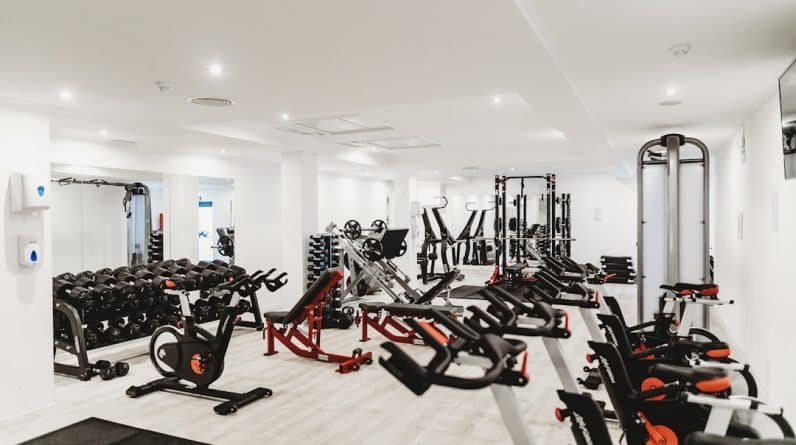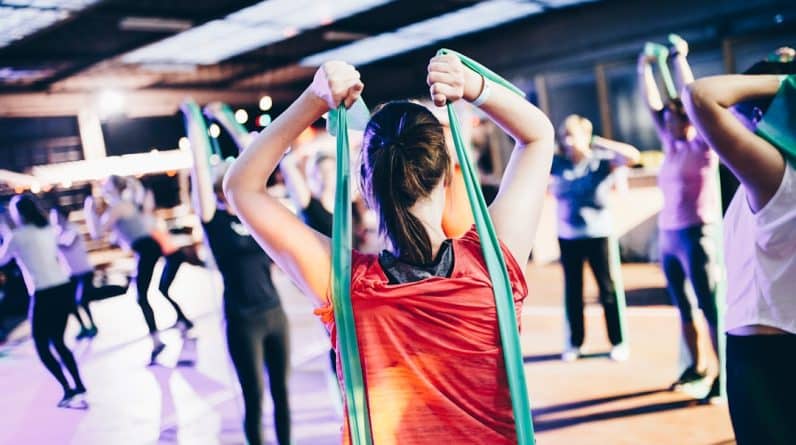
When embarking on a fitness journey, the first step is to set clear and achievable goals. You need to define what you want to accomplish, whether it’s losing weight, building muscle, or simply improving your overall health. By establishing specific objectives, you create a roadmap that guides your efforts and keeps you motivated.
For instance, instead of saying, “I want to get fit,” you might say, “I want to run a 5K in three months.” This specificity not only makes your goal more tangible but also allows you to measure your progress along the way. Moreover, it’s essential to ensure that your goals are realistic and attainable. Setting the bar too high can lead to frustration and disappointment, which may ultimately derail your efforts.
You should consider breaking larger goals into smaller, manageable milestones. For example, if your aim is to lose 20 pounds, you might set a goal to lose 1-2 pounds per week. This incremental approach not only makes the process less daunting but also provides you with a series of achievements to celebrate, keeping your motivation levels high.
Key Takeaways
- Set clear and achievable fitness goals to stay motivated and focused.
- Find a workout buddy or support system to hold yourself accountable and stay motivated.
- Create a consistent exercise schedule to build a routine and make fitness a habit.
- Try new and exciting workouts to keep things interesting and prevent boredom.
- Reward yourself for reaching fitness milestones to stay motivated and celebrate your progress.
Finding a Workout Buddy or Support System
Having a workout buddy or a support system can significantly enhance your fitness journey. When you have someone by your side, it becomes easier to stay accountable and committed to your goals. You can encourage each other during tough workouts, share tips and advice, and celebrate each other’s successes.
This camaraderie can transform what might feel like a solitary endeavor into a fun and engaging experience. You might find that the social aspect of exercising with a friend makes you look forward to your workouts rather than dread them. Additionally, a support system can extend beyond just workout partners.
Consider involving family members or friends who may not work out with you but can still provide encouragement and motivation. Sharing your goals with them can create a sense of accountability; knowing that others are rooting for you can be a powerful motivator. Whether it’s through regular check-ins or simply sharing your progress on social media, having a network of support can make all the difference in maintaining your commitment to fitness.
Creating a Consistent Exercise Schedule

Establishing a consistent exercise schedule is crucial for making fitness a regular part of your life. You need to carve out specific times in your week dedicated solely to working out. By treating these appointments as non-negotiable commitments, you reinforce the importance of fitness in your daily routine.
It’s helpful to choose times when you feel most energetic and motivated; for some, this might be early in the morning, while others may prefer evening workouts. To make this schedule work for you, consider incorporating variety into your routine. Mixing different types of workouts—such as strength training, cardio, and flexibility exercises—can keep things fresh and exciting.
Additionally, don’t forget to include rest days in your schedule; recovery is just as important as the workouts themselves. By planning ahead and sticking to your schedule, you’ll find that exercise becomes an integral part of your lifestyle rather than an afterthought.
Trying New and Exciting Workouts
One of the best ways to stay engaged in your fitness journey is by trying new and exciting workouts. You might find that certain activities resonate with you more than others, so don’t hesitate to explore different options. From dance classes and martial arts to rock climbing and yoga, the possibilities are endless.
Experimenting with various workouts not only keeps things interesting but also helps you discover new passions that can enhance your overall fitness experience. Moreover, trying new workouts can challenge your body in different ways, promoting overall strength and endurance. Engaging in diverse activities can prevent plateaus in your progress and keep you motivated to push yourself further.
You may even find that joining classes or group sessions introduces you to new friends who share similar interests, further enriching your fitness journey. Embrace the opportunity to step outside of your comfort zone; you never know what you might enjoy or how it could positively impact your health.
Rewarding Yourself for Reaching Milestones
As you progress on your fitness journey, it’s essential to reward yourself for reaching milestones along the way. Celebrating achievements—big or small—can provide a significant boost to your motivation and reinforce positive behaviors. Consider setting up a reward system where you treat yourself after hitting specific goals.
This could be anything from indulging in a favorite meal to purchasing new workout gear or enjoying a spa day. However, it’s important to choose rewards that align with your overall fitness objectives. Instead of rewarding yourself with unhealthy food choices that could undermine your progress, opt for rewards that enhance your well-being.
For instance, treating yourself to a massage or a new fitness class can be both enjoyable and beneficial for your body. By associating positive reinforcement with your achievements, you’ll create a cycle of motivation that propels you forward on your journey.
Tracking Your Progress and Celebrating Small Wins

Tracking your progress is an invaluable tool in maintaining motivation and accountability throughout your fitness journey. By keeping a record of your workouts, measurements, or even how you feel physically and mentally, you gain insight into how far you’ve come. This documentation serves as a reminder of your hard work and dedication, especially during times when motivation wanes.
You might consider using apps or journals specifically designed for tracking fitness progress. In addition to tracking overall progress, it’s crucial to celebrate small wins along the way. These victories could be anything from completing an extra set at the gym to running an additional mile without stopping.
Acknowledging these moments helps reinforce positive behavior and keeps you focused on the journey rather than just the end goal. By celebrating small wins, you cultivate a mindset that appreciates growth and improvement, making the process more enjoyable.
Incorporating Fitness into Your Daily Routine
Incorporating fitness into your daily routine is key to making it a sustainable part of your life. You don’t always need to hit the gym for an hour; small changes throughout the day can add up significantly over time. Consider taking the stairs instead of the elevator or going for a brisk walk during your lunch break.
These simple adjustments can help increase your activity levels without requiring major time commitments. Additionally, look for opportunities to engage in physical activity during everyday tasks. For instance, if you’re doing household chores, try turning them into a mini workout by adding lunges or squats while cleaning.
Even playing with your kids or walking the dog can contribute to your overall fitness goals. By weaving physical activity into the fabric of your daily life, you’ll find it easier to stay active without feeling overwhelmed by structured workout sessions.
Finding Inspiration from Fitness Role Models
Finding inspiration from fitness role models can be incredibly motivating as you navigate your own journey. Whether they are professional athletes, social media influencers, or everyday individuals who have transformed their lives through fitness, these role models can provide valuable insights and encouragement. You might follow their journeys online or read their stories in books and articles; their experiences can serve as reminders that achieving fitness goals is possible.
Moreover, seeing others succeed can help you visualize what’s achievable for yourself. Role models often share their struggles along with their triumphs, making their journeys relatable and inspiring. You may find that their tips and strategies resonate with you and provide new ideas for overcoming challenges in your own life.
Surrounding yourself with positive influences can create an uplifting environment that fosters growth and determination.
Joining a Fitness Community or Group
Joining a fitness community or group can significantly enhance your motivation and commitment to exercise. Being part of a collective effort fosters camaraderie and accountability; when others are counting on you or cheering for you, it becomes easier to stay dedicated to your goals. Whether it’s a local running club, a yoga class, or an online fitness group, connecting with like-minded individuals can provide support and encouragement throughout your journey.
Additionally, participating in group activities often introduces an element of fun and competition that can elevate your experience. You may find yourself pushing harder during workouts when surrounded by others who share similar aspirations. The friendships formed within these communities can also provide lasting support beyond just fitness; they create bonds based on shared experiences and mutual encouragement that enrich both your physical and emotional well-being.
Focusing on the Mental and Emotional Benefits of Exercise
While physical benefits are often emphasized in fitness discussions, it’s equally important to focus on the mental and emotional advantages of regular exercise. Engaging in physical activity releases endorphins—often referred to as “feel-good” hormones—that can elevate your mood and reduce feelings of stress or anxiety. You may notice that after a workout session, you feel more relaxed and mentally clear; this is not just coincidence but rather a natural response from your body.
Moreover, exercise can serve as an effective outlet for managing emotions and improving mental health over time. It provides an opportunity for self-reflection and mindfulness as you concentrate on movement and breath during workouts. By prioritizing these mental benefits alongside physical goals, you cultivate a holistic approach to fitness that nurtures both body and mind—ultimately leading to greater overall well-being.
Seeking Professional Help and Guidance
Finally, seeking professional help and guidance can be an invaluable asset on your fitness journey. Whether it’s hiring a personal trainer, consulting with a nutritionist, or attending workshops led by experts in the field, professional support can provide tailored advice that aligns with your specific goals and needs. Trainers can help design personalized workout plans that maximize efficiency while minimizing the risk of injury; they also offer motivation and accountability during sessions.
Additionally, nutritionists can guide you in making healthier food choices that complement your exercise routine. Understanding how nutrition impacts performance is crucial for achieving optimal results; professionals can help demystify this aspect of fitness for you. By investing in professional guidance, you equip yourself with knowledge and tools that empower you to make informed decisions throughout your journey—ultimately leading to more sustainable success in achieving your fitness goals.
If you’re looking for effective fitness motivation tips in Chandler, AZ, you might find it helpful to explore how tracking your progress can significantly boost your motivation. For more insights on this topic, check out the article on tracking progress and celebrating achievements. This resource provides valuable strategies to help you stay committed to your fitness goals and recognize your accomplishments along the way.
FAQs
What are some effective fitness motivation tips?
Some effective fitness motivation tips include setting specific and achievable goals, finding a workout buddy or joining a fitness community, varying your workouts to keep things interesting, rewarding yourself for reaching milestones, and focusing on the positive benefits of exercise.
How can I stay motivated to exercise regularly?
To stay motivated to exercise regularly, it can be helpful to schedule your workouts, find activities that you enjoy, track your progress, and remind yourself of the reasons why you want to be fit and healthy. Additionally, seeking support from friends, family, or a personal trainer can also help keep you accountable and motivated.
What are some common barriers to fitness motivation?
Common barriers to fitness motivation include lack of time, feeling too tired or unmotivated, experiencing a lack of results, and dealing with injuries or health issues. Overcoming these barriers may involve finding ways to make exercise a priority, adjusting your workout routine, seeking professional guidance, and addressing any underlying health concerns.
How can I maintain long-term fitness motivation?
To maintain long-term fitness motivation, it’s important to focus on creating sustainable habits, finding activities that you genuinely enjoy, and regularly reassessing and adjusting your goals. Building a supportive network of friends, family, or fitness professionals can also help keep you motivated and accountable over the long term.





